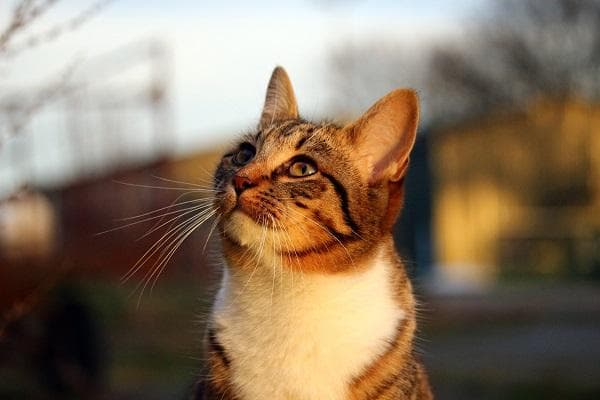Cats inherit their good looks from their fur-parents, but how much of your cat’s health and personality comes from you? Environmental factors greatly shape how your cat's DNA is expressed. Here's what you need to know about your cat's environment vs DNA.
An equation for calculating a "CAT"
There are 3 main factors that contribute to making every cat unique: their DNA, the way they’re raised and treated, and the food they’re fed. How much do each of these variables contribute to creating a cat? Well, that depends on a case-by-case basis for each trait. Here’s a hypothetical calculation for your cat’s healthy coat of fur:
85% Genes + 5% Environment + 10% Diet=100% Luxurious Fluff
In other words, your cat’s coat is mostly determined by his DNA, but the way it's expressed is heavily influenced by external factors.

Environment vs DNA: What makes your cat so unique?
Your cat’s genes contribute more than you think
The value that genes contribute to the "cat equation" (85% in the equation above) is officially called the heritability of a trait. Scientists calculate heritability values all the time. One great example is the likelihood that a cat will rub his little kitty face into (dried catnip) and then roll around. It turns out that this trait is 79% determined by genetics.
Whether a cat will catch an infectious disease is also something that can be inherited. The heritability of contracting feline infectious peritonitis, a fatal disease caused by a viral infection, is a shocking 50% when measured in Persian and Birman cats.
Although scientists have only calculated the heritability of a few cat traits, there are strong genetic components to most cat traits you can think of. Even the (willingness of cats to be handled by strangers) has as much to do with the disposition of their absent kitty fathers as it does with their doting human parents.
This sounds simple! (Spoiler alert: It’s not)
If scientists can calculate the heritability of traits, does that mean we can predict your cat’s inherited personality and health simply by reading the DNA? Well, not exactly…
It’s one thing to know that a trait is inherited, and it’s a whole other thing to figure out which gene or genes are behind the scenes. Your cat’s DNA contains around (20,000 genes). It can take a lot of detective work to identify the exact gene(s) responsible for your cat’s obsession with paper bags.
Sometimes a trait is caused by a single gene mutation, like the missing tails on the Manx cat. When only one gene is responsible, it’s a lot easier for scientists to predict with confidence whether or not your cat has a tail (without looking at it, of course).
However, most kitty traits are determined by multiple genes. For instance, even though your cat’s overall genetics can predict with a 79% likelihood whether she will be a catnip fiend, there could be 5, 20, or even 100 genes that each contribute a little bit to that 79%. If we only know a few of those genes, then our prediction will be less certain (more like 5% or 10%).
When you get your (cat’s DNA sequenced), in addition to learning more about his ancestry, you will receive a report that indicates the likelihood that your cat possesses different cat traits. Cat genetics is a new scientific frontier, and every cat that joins the Basepaws community will help us identify more genes and increase our ability to predict a cat’s health and habits through DNA. As we continue to learn more, your cat’s report will also continue to grow.
In the long run, much of what we learn about our cats’ health can be applied to human health. After all, we share (90% of our genes) with our cats! Improving our cats’ lives will help us improve our lives, in many different ways.

Environment vs DNA: What makes your cat so unique?
So, how much of my cat’s uniqueness comes from me?
Cat traits are determined by genetics, environment and diet. If catnip addicts are 79% influenced by genetics, that leaves 21% up to you. As we learn more about the heritability of your cat’s traits, we’ll also provide you with the latest research on how to use diet and environment to help your cat reach her full potential.




